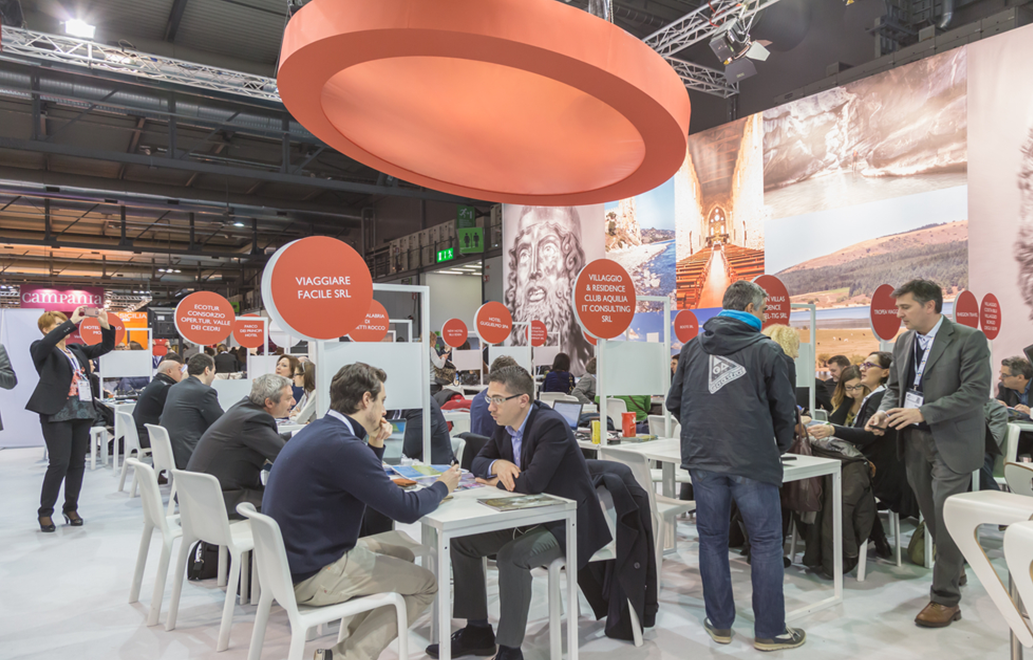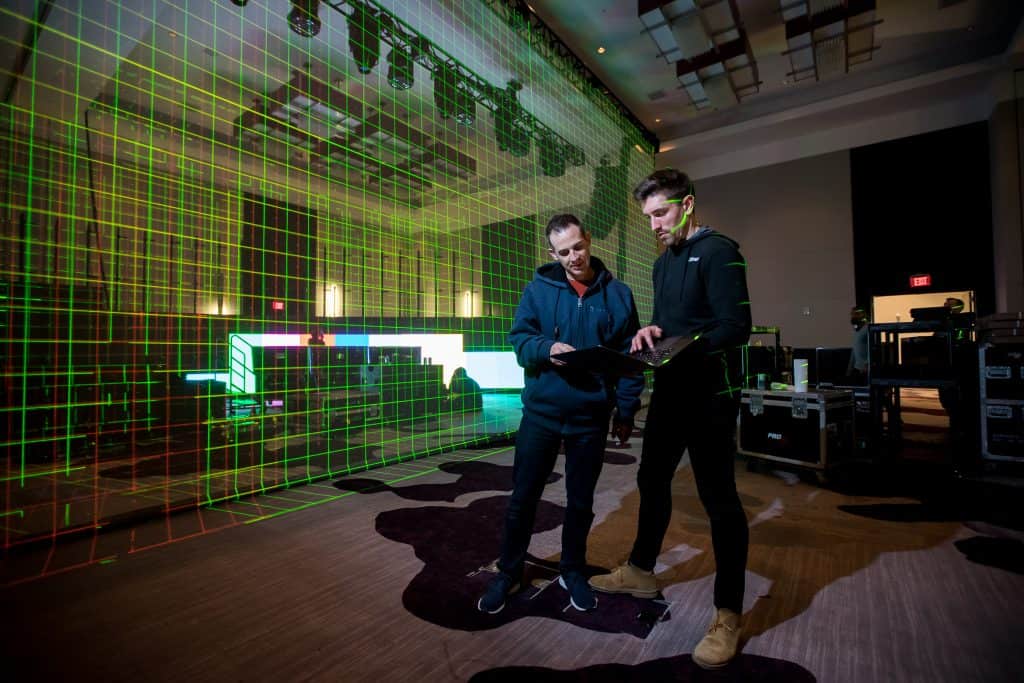Understanding Event Production: Why It Is Very Important for Effective Events
Event production plays an essential duty in forming effective gatherings. It involves mindful preparation, sychronisation, and implementation to guarantee every detail lines up with the event's vision. This process not only enhances participant experiences yet also assists in purposeful connections among participants. Comprehending the complexities of event production can considerably impact the total end result. What are the vital components that add to an effective event, and just how can they be efficiently taken care of?
The Role of Event Production in Creating Memorable Experiences
Although many aspects add to the success of an event, event production plays an essential function in crafting remarkable experiences. This complex procedure encompasses various elements, consisting of planning, logistics, and execution. Reliable event production guarantees that every detail lines up with the general vision, developing a smooth circulation that mesmerizes participants. By working with timelines, managing resources, and looking after technical elements, event producers develop a foundation for impactful experiences.Moreover, they curate settings that reverberate with the target market, improving involvement and emotional link. From choosing ideal places to integrating cutting-edge technology, the selections made throughout production considerably affect how participants regard and bear in mind the event. By focusing on high quality and focus to detail, event production changes ordinary celebrations into remarkable moments, leaving lasting impacts. Inevitably, the skilled orchestration of these elements specifies the essence of an occasion, showcasing the value of expert event production in accomplishing remarkable outcomes.
Secret Elements of Effective Event Production
Reliable event production depends upon a number of vital components that ensure success. Preparation and coordination establish a solid structure, while technical configuration requirements address logistical demands. Additionally, carrying out target market interaction approaches enhances the general experience, making the event unforgettable.
Preparation and Sychronisation
Preparation and control work as the foundation of effective event production, guaranteeing that every information straightens flawlessly to produce an unforgettable experience. Efficient planning includes developing a clear vision and purposes, while coordination entails the careful company of logistics, schedules, and resources. A well-defined timeline is necessary, assisting all stakeholders through crucial turning points and jobs. Interaction plays an essential duty, cultivating cooperation amongst team participants, vendors, and venue staff. Regular conferences and updates aid to address challenges quickly, making sure that everybody stays aligned with the event goals. Ultimately, an organized strategy to preparation and coordination not only enhances performance yet likewise significantly adds to the general success and enjoyment of the event for attendees and coordinators alike.
Technical Configuration Requirements
An effective event depends heavily on its technological arrangement demands, which include vital components such as audio-visual tools, illumination, staging, and connectivity. Audio-visual devices includes microphones, audio speakers, and projectors, ensuring that presentations and efficiencies are provided clearly. Correct lighting boosts the setting and highlights crucial areas, while presenting supplies the required system for speakers and performers. Connection, including Wi-Fi and electric gain access to, is vital for smooth communication and innovation integration. Each part should be diligently prepared and implemented, tailored to the event's certain needs. Insufficient technical arrangements can cause disruptions, negatively influencing the overall experience for guests, underscoring the relevance of complete prep work and attention to detail in event production.
Target Market Engagement Methods

The Value of Preparation and Coordination
Planning and coordination are important to the success of any event production. Effective timeline management, resource allotment techniques, and group communication dynamics play crucial roles in ensuring that all elements integrated seamlessly. Without a structured approach to these facets, events risk facing delays, spending plan overruns, and miscommunication amongst employee.
Efficient Timeline Administration


While successful event production commonly depends upon creativity and execution, effective timeline management remains a crucial element that can not be overlooked. A well-structured timeline offers as the backbone of any event, ensuring that each phase is performed in a timely way. It permits the sychronisation of various tasks, from location setup to guest arrivals, while stopping potential traffic jams. By plainly laying out target dates and duties, event coordinators can keep focus and adapt to unanticipated difficulties. Furthermore, a carefully crafted timeline fosters interaction among staff member, advertising responsibility and partnership. Eventually, effective timeline monitoring not just enhances functional effectiveness however also adds considerably to the overall success and smooth execution of the event, leaving attendees with a remarkable experience.
Resource Allotment Approaches
Efficient resource allocation approaches are vital for the successful implementation of any kind of event. Appropriate planning enables event organizers to determine and disperse sources, such as funds, workers, and products, in a way that click site makes best use of effectiveness. By assessing the certain needs of each element of the event, organizers can focus on tasks and designate sources appropriately. Control among various divisions guarantees that all components, from accommodating audiovisual requirements, are adequately sustained. This strategic technique not just minimizes waste however also boosts the general experience for participants. In addition, anticipating prospective obstacles and having backup plans in position permits smoother procedures. Eventually, reliable source allocation adds substantially to attaining event objectives and guaranteeing a memorable gathering.
Group Interaction Characteristics
Just how can smooth interaction amongst staff member transform the event production process? Effective communication is important for coordinating tasks, sharing updates, and dealing with challenges in real-time. When staff member take part in open dialogue, they can swiftly determine prospective problems and create remedies collaboratively, decreasing hold-ups and misunderstandings. This dynamic fosters a cohesive setting where everybody comprehends their roles and responsibilities, resulting in a more synchronized initiative. In addition, routine check-ins and feedback loops enhance accountability and warranty positioning with the event's goals. By prioritizing interaction techniques, teams can simplify process, reinforce morale, and inevitably boost the general quality of the event. Effective events pivot on the capability to interact effectively, making it an important part of event production.
Enhancing Guest Engagement Via Creative Design
Innovative style plays a critical duty in enhancing participant interaction at events, as it cultivates an immersive setting that mesmerizes individuals' attention. By incorporating innovative visuals, interactive aspects, and thematic style, event planners can create memorable experiences that reverberate with participants. Thoughtful layout designs promote movement and expedition, urging guests to interact with displays and each other.Incorporating innovation, such as increased reality or live polling, more enriches the experience, enabling real-time responses and interaction. Furthermore, sensory components like illumination, sound, and fragrance can stimulate feelings and develop a much more appealing atmosphere.The use narration via layout helps communicate the event's objective and message, making it more relatable for attendees. Eventually, innovative style not just enhances engagement however likewise strengthens links amongst individuals, leaving a lasting impression that extends beyond the event itself. This strategic method to style is crucial for effective celebrations.
Taking care of Logistics for a Smooth Implementation
While the excitement of an occasion can attract guests in, taking care of logistics is essential to protect a smooth execution. This involves meticulously coordinating various elements, from venue selection and format to wedding catering and transport. Efficient logistics administration guarantees that all parts line up, permitting a smooth flow from enrollment to the final thought of the event.Additionally, a clear communication resource plan amongst all stakeholders is crucial. This consists of personnel, suppliers, and volunteers, who must be educated of their duties and duties. Expecting potential obstacles, such as devices failure or unanticipated climate condition, can even more boost the event's success.Creating an in-depth timeline helps keep the group on track and permits for timely adjustments. Inevitably, well-managed logistics not only facilitate a delightful experience for attendees however also mirror the professionalism and integrity of the organizers, adding to the general success of the gathering.

The Effect of Innovation on Event Production
What duty does modern technology play fit modern event production? Modern technology has actually come to be a cornerstone of effective event production, enhancing both intending and implementation procedures. From advanced registration systems to interactive applications, modern technology improves participant management and improves involvement. Digital event platforms permit coordinators to reach wider target markets, damaging geographical obstacles and helping with hybrid events that incorporate in-person and on the internet experiences.Additionally, audiovisual innovations, such as high-definition screens and sound systems, elevate the quality of discussions and efficiencies, making sure a memorable experience for guests - event production charlotte. Social network integration makes it possible for real-time comments and interaction, fostering area engagement previously, throughout, and after the event. Additionally, information analytics tools assist coordinators in monitoring participant behavior and choices, enabling customized experiences that resonate with varied target markets. In general, the assimilation of technology in official website event production not only enhances operational efficiency however also improves attendee experiences, inevitably adding to the success of the event
Assessing Success: Determining the Outcomes of Your Event
Success in event production pivots on reliable examination, which entails determining a variety of results to analyze the overall influence of an occasion. To accomplish this, organizers can employ both qualitative and quantitative metrics. Quantitative procedures might consist of presence figures, ticket sales, and income produced, while qualitative assessments might entail attendee complete satisfaction surveys and feedback forms.Additionally, evaluating social media engagement and media protection can offer insights right into the event's reach and brand name impact. Comparing these metrics against predefined goals helps identify if the objectives were met.Furthermore, post-event debriefs with the planning group can discover lessons learned and locations for improvement. By systematically assessing these outcomes, event manufacturers can boost future events, ensuring continual development and success. Eventually, an extensive examination not only highlights success yet also educates calculated choices for succeeding events, promoting a society of quality in event production.
Often Asked Inquiries
What Certifications Should an Event Manufacturer Have?
Event manufacturers ought to possess strong organizational abilities, creativity, and reliable interaction capabilities. A history in task management, budgeting, and negotiation is vital. Appropriate accreditations and experience in diverse event types even more boost their certifications.
Just How Can I Decrease Event Production Prices Successfully?
To properly reduce event production prices, one can enhance supplier option, work out contracts, use internal sources, prioritize vital components, apply modern technology for performance, and discover sponsorship opportunities to counter expenditures without endangering high quality.
What Are the Usual Challenges in Event Production?
Typical challenges in event production consist of budget restrictions, logistical sychronisation, vendor administration, time constraints, guest interaction, technical difficulties, and unexpected circumstances - event production charlotte. Each variable can greatly affect the total success and smooth execution of the event
How Do I Select the Right Venue for My Event?
Selecting the ideal location involves taking into consideration variables such as location, ability, services, and spending plan. Additionally, evaluating access and atmosphere guarantees the selected area lines up with the event's objectives and enhances the general participant experience.
What Is the Typical Timeline for Preparation an Occasion?
The common timeline for planning an event varies, however typically includes phases such as idea growth, location selection, supplier sychronisation, promotion, and final prep work, frequently covering several months to ensure an effective execution.